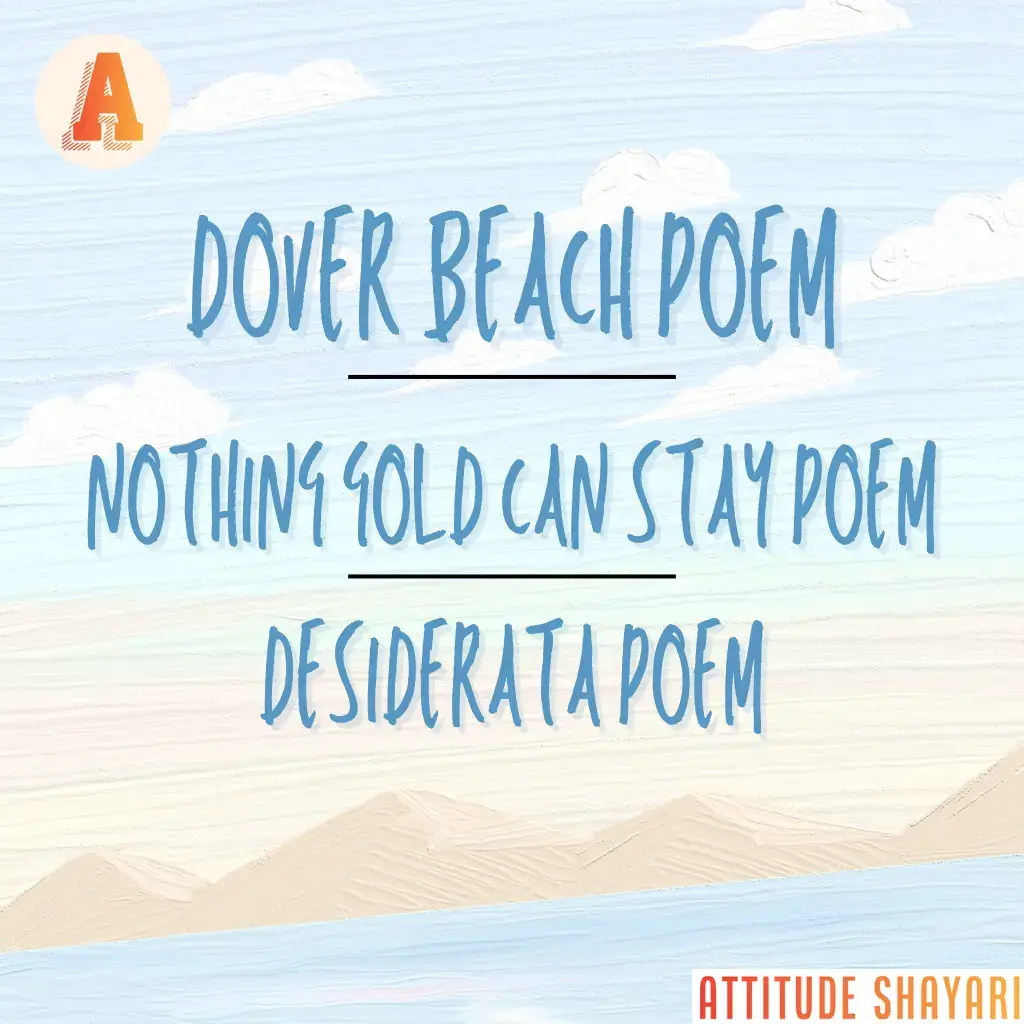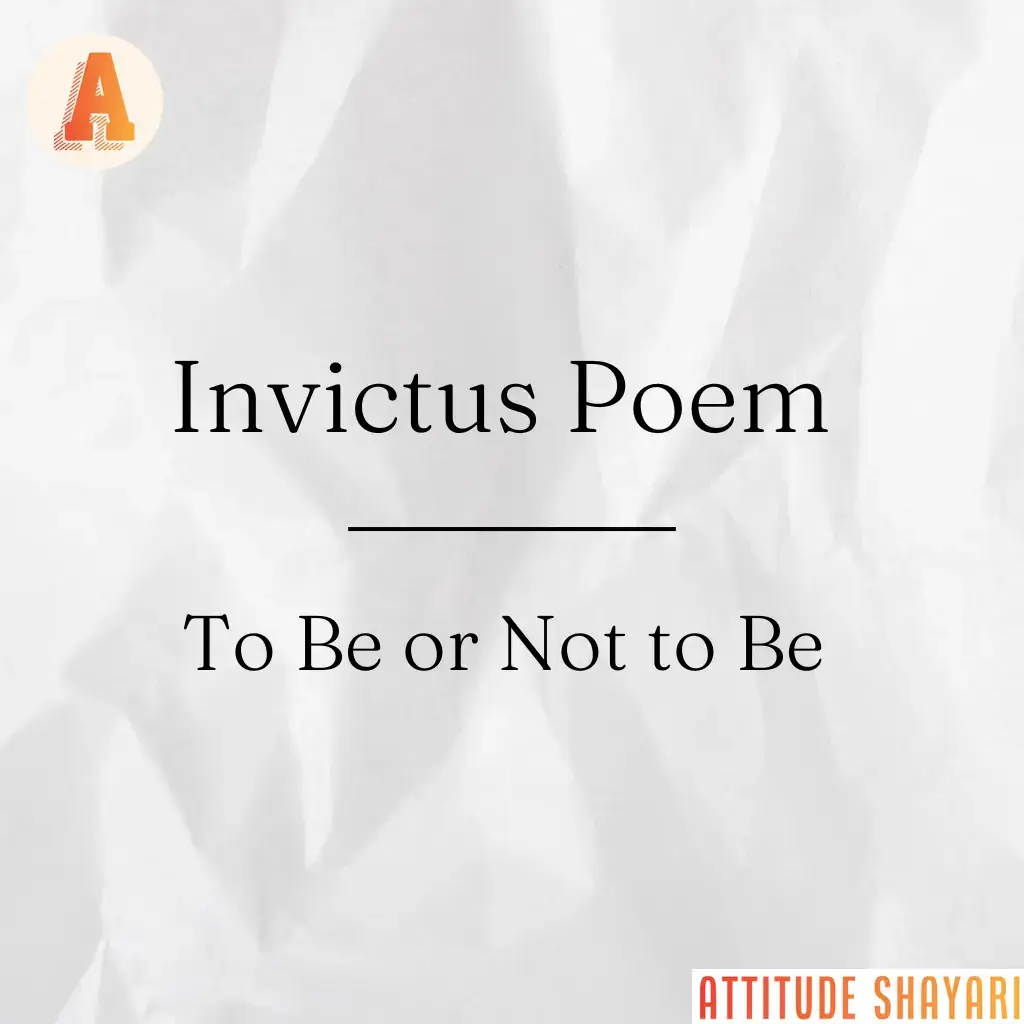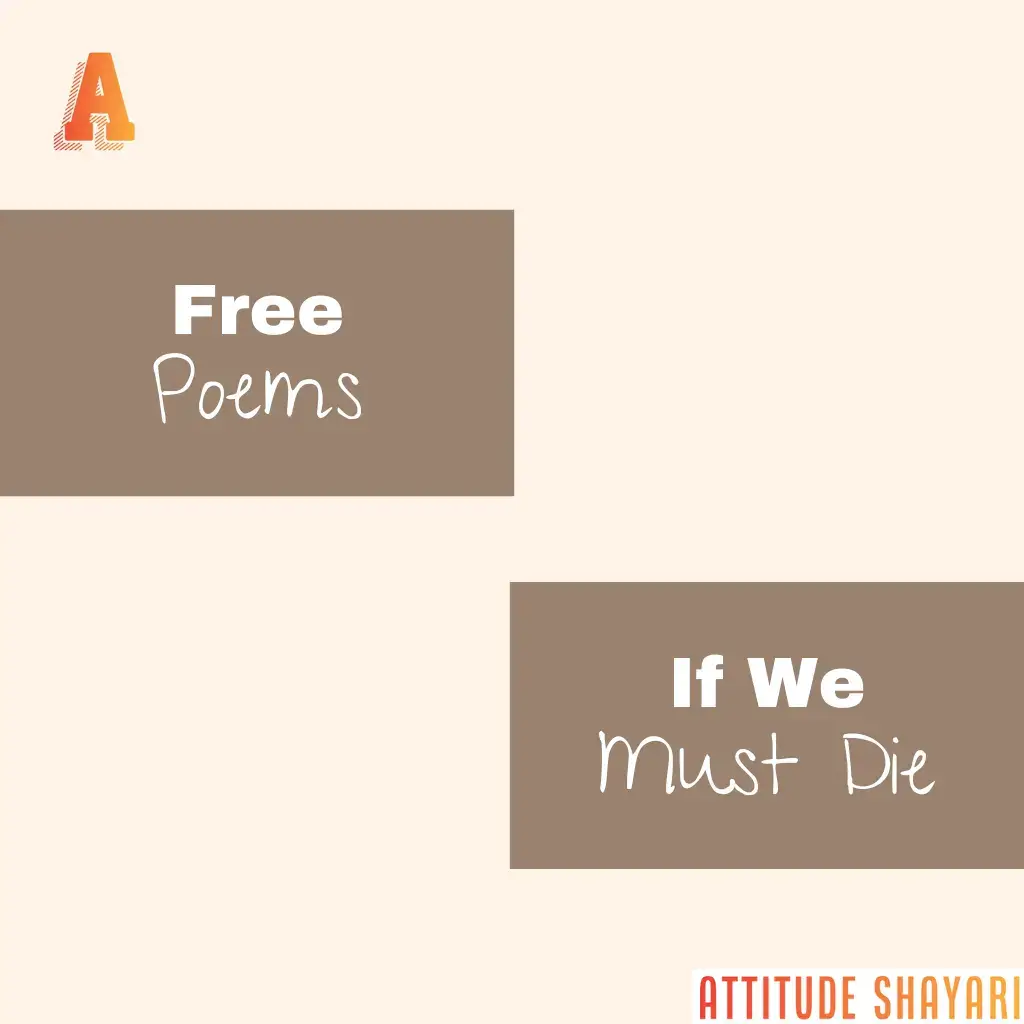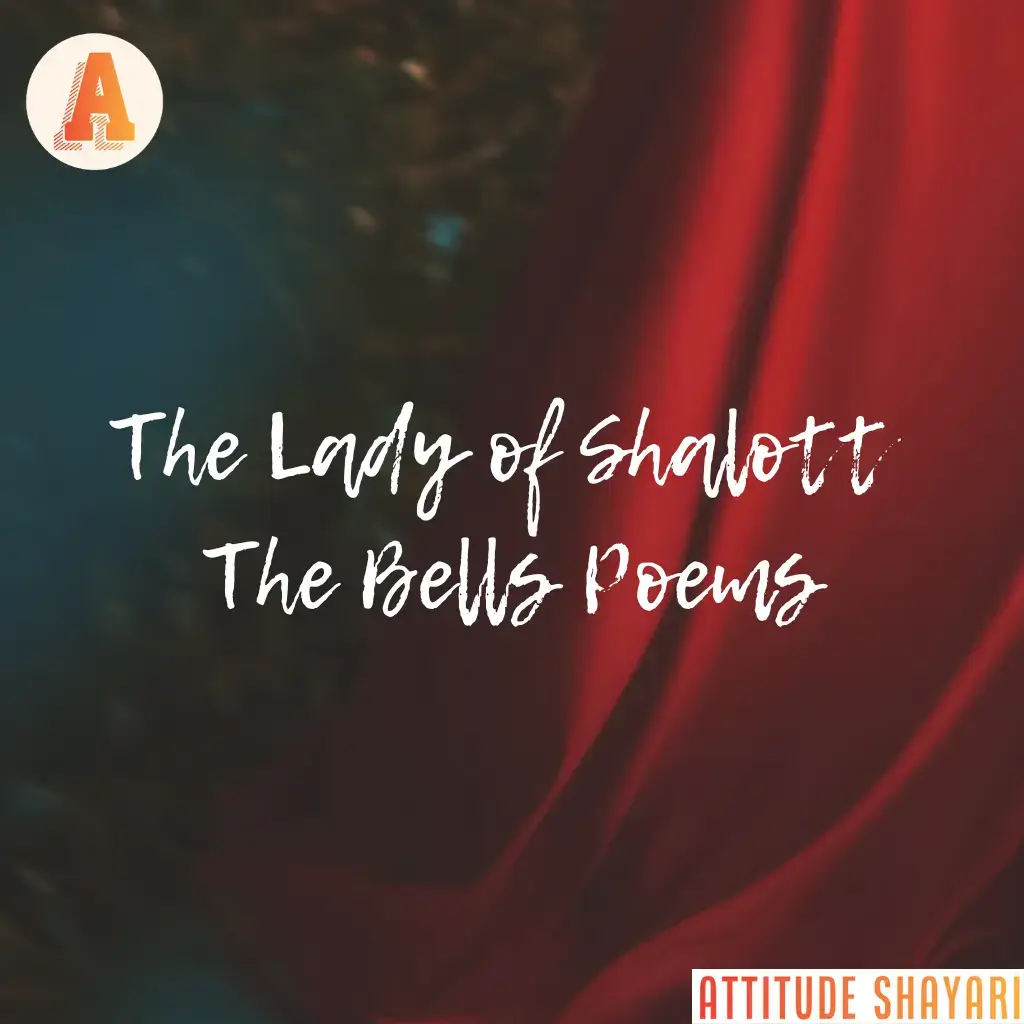
The Lady of Shalott is a poem written by Alfred Lord Tennyson. It is telling the story of a woman who is cursed to live in a tower and is isolated from outside the world. She can only see life through a mirror and spends her days weaving what she sees. One day, she sees Sir Lancelot and is so much drawn to him that she leaves her tower and breaking this curse. The poem is exploring the themes of isolation, and the desire for the freedom.
The Bells poem by Edgar Allan Poe describes many types of bells and the emotions they arise. The poem starts with the cheerful sounds of silver bells which symbolizes the happiness and celebration. It moves to more louder that signal danger or even death. The musical structure of the poem creates a rhythm that matches the sounds of the bells which makes the reader feel the emotions which ranges from joy to fear and sadness.
Poem of the Day
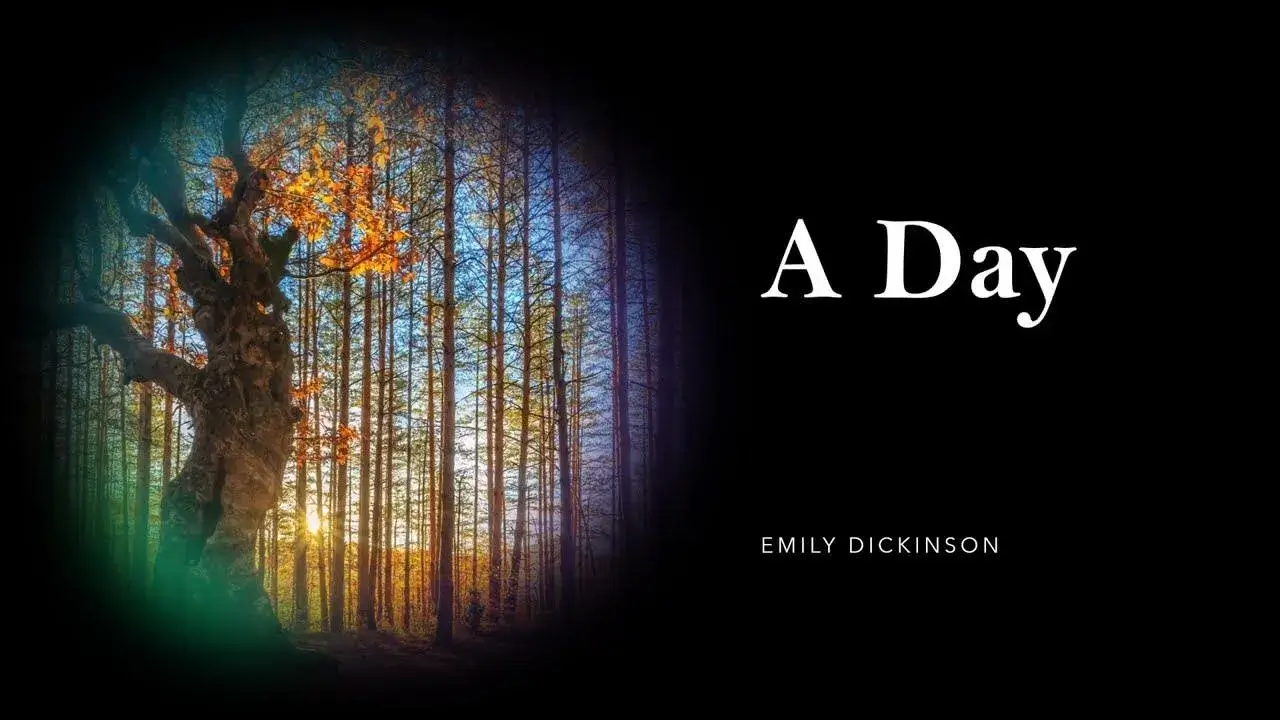
[quote]I’ll tell you how the sun rose, —
A ribbon at a time.
The steeples swam in amethyst,
The news like squirrels ran.The hills untied their bonnets,
The bobolinks begun.
Then I said softly to myself,
“That must have been the sun!”But how he set, I know not.
There seemed a purple stile
Which little yellow boys and girls
Were climbing all the whileTill when they reached the other side,
A dominie in gray
Put gently up the evening bars,
And led the flock away.[/quote]
[quote]One arm can be raised painlessly.The other arm cannot be raised, painlessly.
One foot beautifully articulates to all sides.
The other foot is locked, causing a limp.
One glute goes unnoticed throughout the day.
The other glute is incessantly irritated.[/quote] [quote]There’s a million gnats hanging around here.
Not all the gnats are in great shape.
Some more than others are more spry.
Matter of fact, you could line them up, one by one.
An array of nano-differences would emerge.
We might call that a scale.
Whatever.[/quote]
[quote]Primate that doesn’t heal, that’s the poem.
That’s the poem on a scale—of spryness.
It both can and cannot walk—without a limp.
But it moves through—the gnat space, the ape space.
It gears towards its own sun.
That’s the perception, at least
The minimally required deception
To get to sun not its own but felt as its own.
And how not?
“Our collective sun”—that perennialist phrase
Uttered by limpers-in-life, alongside gnats
Agitated, swirling among, swatting each other.[/quote] [quote]The nerve endings of tendons are fueled by the sun
Not by the stars or the moon, well maybe the moon.
Maybe moving limbs are lunar tributes
Without our sunny consent.
Maybe the gnats should calm the fuck down.
Maybe the apes should dote on more practical matters
Like, four limbs wiggling efficiently enough
Powered by hobbled hips
Happily venerating the sun among gnats
Curiously awaiting what moonlight might bring
What creature companions might emerge
What verse lines will reach out for reception
What painful or joyful range of motion might ensue
Among apes, gnats notwithstanding.
The sun, absurdly sunny, urging on.[/quote]
Read More: Sad Poems of Love and Life
Winkin Blinkin and Nod Poem
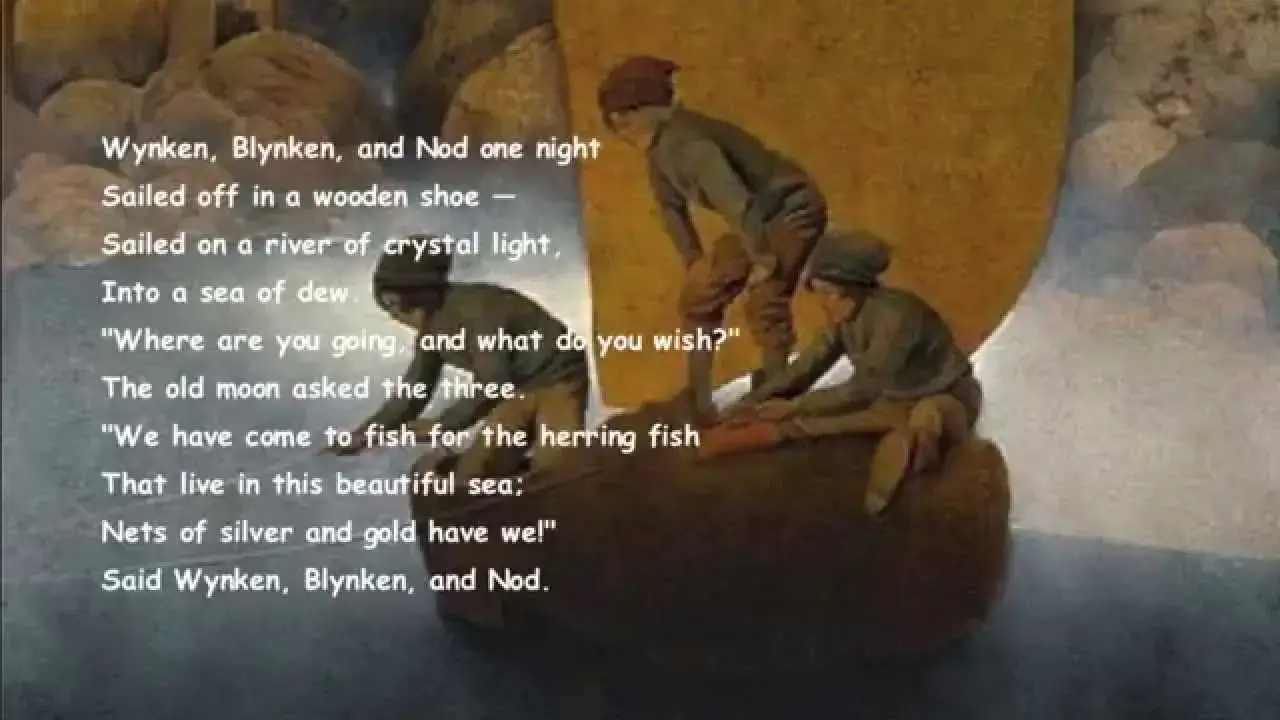
Sailed off in a wooden shoe—
Sailed on a river of crystal light,
Into a sea of dew.
‘Where are you going, and what do you wish?’
The old moon asked the three.
‘We have come to fish for the herring-fish
That live in this beautiful sea;
Nets of silver and gold have we!’
Said Wynken,
Blynken,
And Nod.[/quote] [quote] The old moon laughed and sang a song,
As they rocked in the wooden shoe,
And the wind that sped them all night long
Ruffled the waves of dew.
The little stars were the herring fish
That lived in the beautiful sea–
‘Now cast your nets wherever you wish—
Never afeard are we’;
So cried the stars to the fishermen three:
Wynken,
Blynken,
And Nod.[/quote] [quote] All night long their nets they threw
To the stars in the twinkling foam—
Then down from the skies came the wooden shoe,
Bringing the fishermen home;
‘Twas all so pretty a sail it seemed
As if it could not be,
And some folk thought ’twas a dream they’d dreamed
Of sailing that beautiful sea–
But I shall name you the fishermen three:
Wynken,
Blynken,
And Nod.[/quote] [quote] Wynken and Blynken are two little eyes,
And Nod is a little head,
And the wooden shoe that sailed the skies
Is the wee one’s trundle-bed.
So shut your eyes while mother sings
Of wonderful sights that be,
And you shall see the beautiful things
As you rock in the misty sea,
Where the old shoe rocked the fishermen three:
Wynken,
Blynken,
And Nod.[/quote]
Read More: Emotional Love Sad Poetry in English, Urdu, and Hindi
The Lady of Shalott Poem
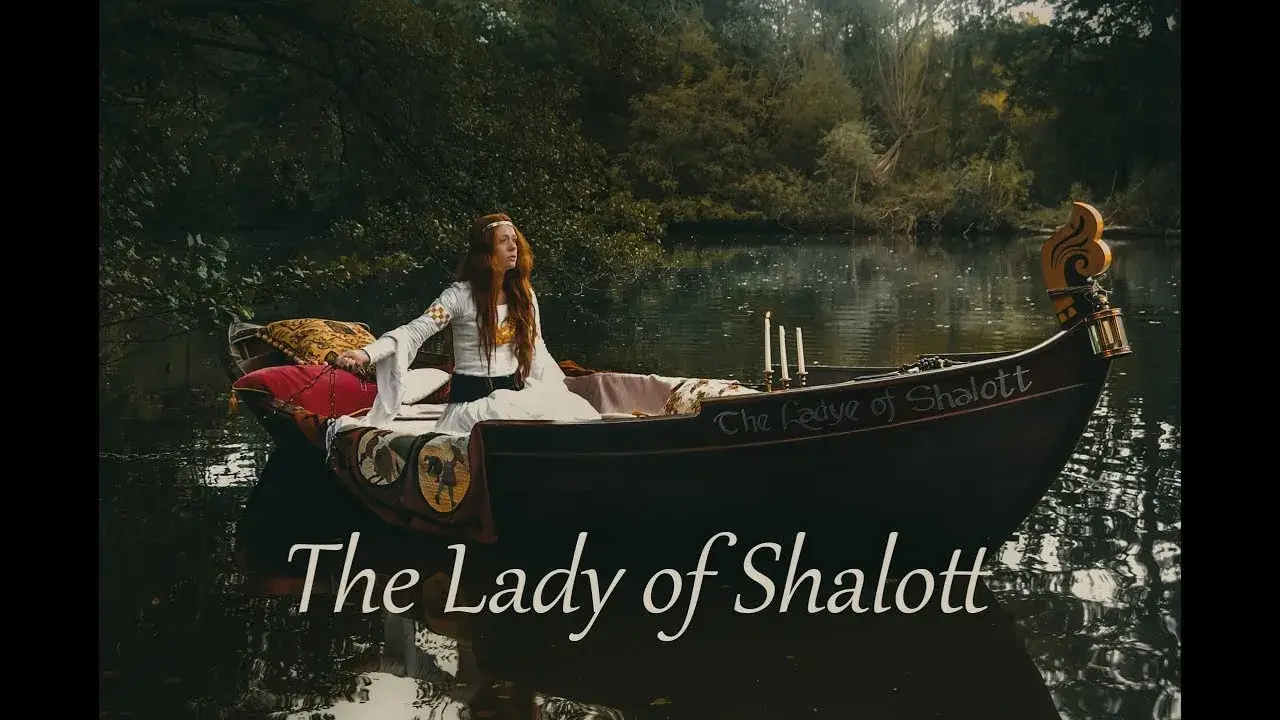
Long fields of barley and of rye,
That clothe the wold and meet the sky;
And thro’ the field the road runs by
To many-tower’d Camelot;
And up and down the people go,
Gazing where the lilies blow
Round an island there below,
The island of Shalott.[/quote] [quote]Willows whiten, aspens quiver,
Little breezes dusk and shiver
Thro’ the wave that runs for ever
By the island in the river
Flowing down to Camelot.
Four gray walls, and four gray towers,
Overlook a space of flowers,
And the silent isle imbowers
The Lady of Shalott. [/quote] [quote] By the margin, willow-veil’d,
Slide the heavy barges trail’d
By slow horses; and unhail’d
The shallop flitteth silken-sail’d
Skimming down to Camelot:
But who hath seen her wave her hand?
Or at the casement seen her stand?
Or is she known in all the land,
The Lady of Shalott?[/quote] [quote]Only reapers, reaping early
In among the bearded barley,
Hear a song that echoes cheerly
From the river winding clearly,
Down to tower’d Camelot:
And by the moon the reaper weary,
Piling sheaves in uplands airy,
Listening, whispers ”Tis the fairy
Lady of Shalott.’ [/quote] [quote]There she weaves by night and day
A magic web with colours gay.
She has heard a whisper say,
A curse is on her if she stay
To look down to Camelot.
She knows not what the curse may be,
And so she weaveth steadily,
And little other care hath she,
The Lady of Shalott. [/quote]
Read More: Invictus Poem
The Bells Poem
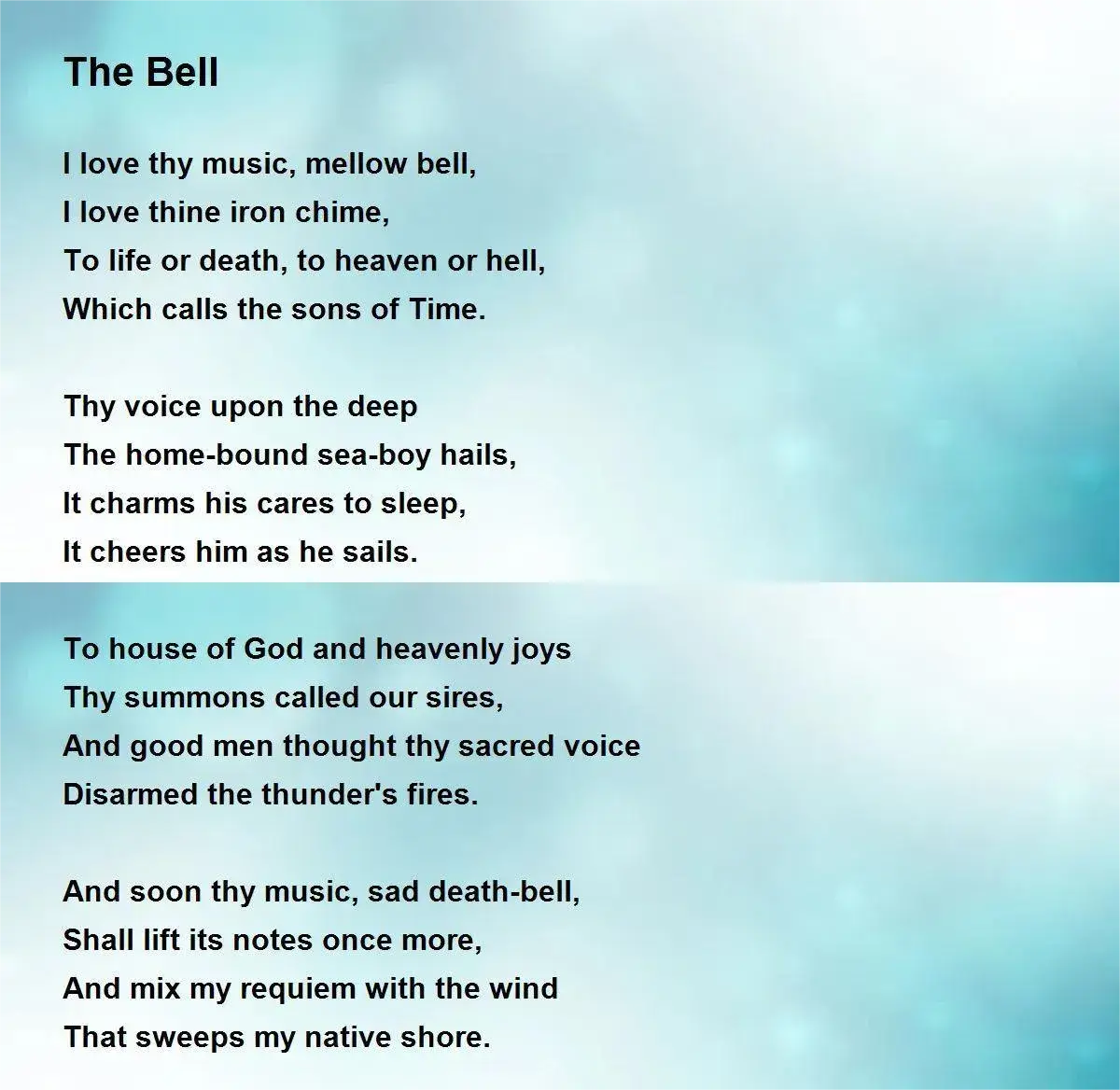
Silver bells!
What a world of merriment their melody foretells!
How they tinkle, tinkle, tinkle,
In the icy air of night!
While the stars that oversprinkle
All the heavens, seem to twinkle
With a crystalline delight;
Keeping time, time, time,
In a sort of Runic rhyme,
To the tintinabulation that so musically wells
From the bells, bells, bells, bells,
Bells, bells, bells—
From the jingling and the tinkling of the bells.[/quote] [quote]Hear the mellow wedding bells,
Golden bells!
What a world of happiness their harmony foretells!
Through the balmy air of night
How they ring out their delight!
From the molten-golden notes,
And all in tune,
What a liquid ditty floats
To the turtle-dove that listens, while she gloats
On the moon!
Oh, from out the sounding cells,
What a gush of euphony voluminously wells!
How it swells!
How it dwells
On the Future! how it tells
Of the rapture that impels
To the swinging and the ringing
Of the bells, bells, bells,
Of the bells, bells, bells, bells,
Bells, bells, bells—
To the rhyming and the chiming of the bells![/quote] [quote] Hear the loud alarum bells—
Brazen bells!
What tale of terror, now, their turbulency tells!
In the startled ear of night
How they scream out their affright!
Too much horrified to speak,
They can only shriek, shriek,
Out of tune,
In a clamorous appealing to the mercy of the fire,
In a mad expostulation with the deaf and frantic fire,
Leaping higher, higher, higher,
With a desperate desire,
And a resolute endeavor
Now—now to sit or never,
By the side of the pale-faced moon.
Oh, the bells, bells, bells!
What a tale their terror tells
Of Despair! [/quote] [quote] How they clang, and clash, and roar!
What a horror they outpour
On the bosom of the palpitating air!
Yet the ear it fully knows,
By the twanging,
And the clanging,
How the danger ebbs and flows;
Yet the ear distinctly tells,
In the jangling,
And the wrangling.
How the danger sinks and swells,
By the sinking or the swelling in the anger of the bells—
Of the bells—
Of the bells, bells, bells, bells,
Bells, bells, bells—
In the clamor and the clangor of the bells! [/quote] [quote]Hear the tolling of the bells—
Iron bells!
What a world of solemn thought their monody compels!
In the silence of the night,
How we shiver with affright
At the melancholy menace of their tone!
For every sound that floats
From the rust within their throats
Is a groan. [/quote]
Read More: Timeless Love Poems by Famous Poets
For Whom The Bell Tolls Poem
[quote] No man is an island,Entire of itself.
Each is a piece of the continent,
A part of the main.
If a clod be washed away by the sea,
Europe is the less.
As well as if a promontory were.
As well as if a manor of thine own
Or of thine friend’s were.
Each man’s death diminishes me,
For I am involved in mankind.
Therefore, send not to know
For whom the bell tolls,
It tolls for thee. [/quote]
